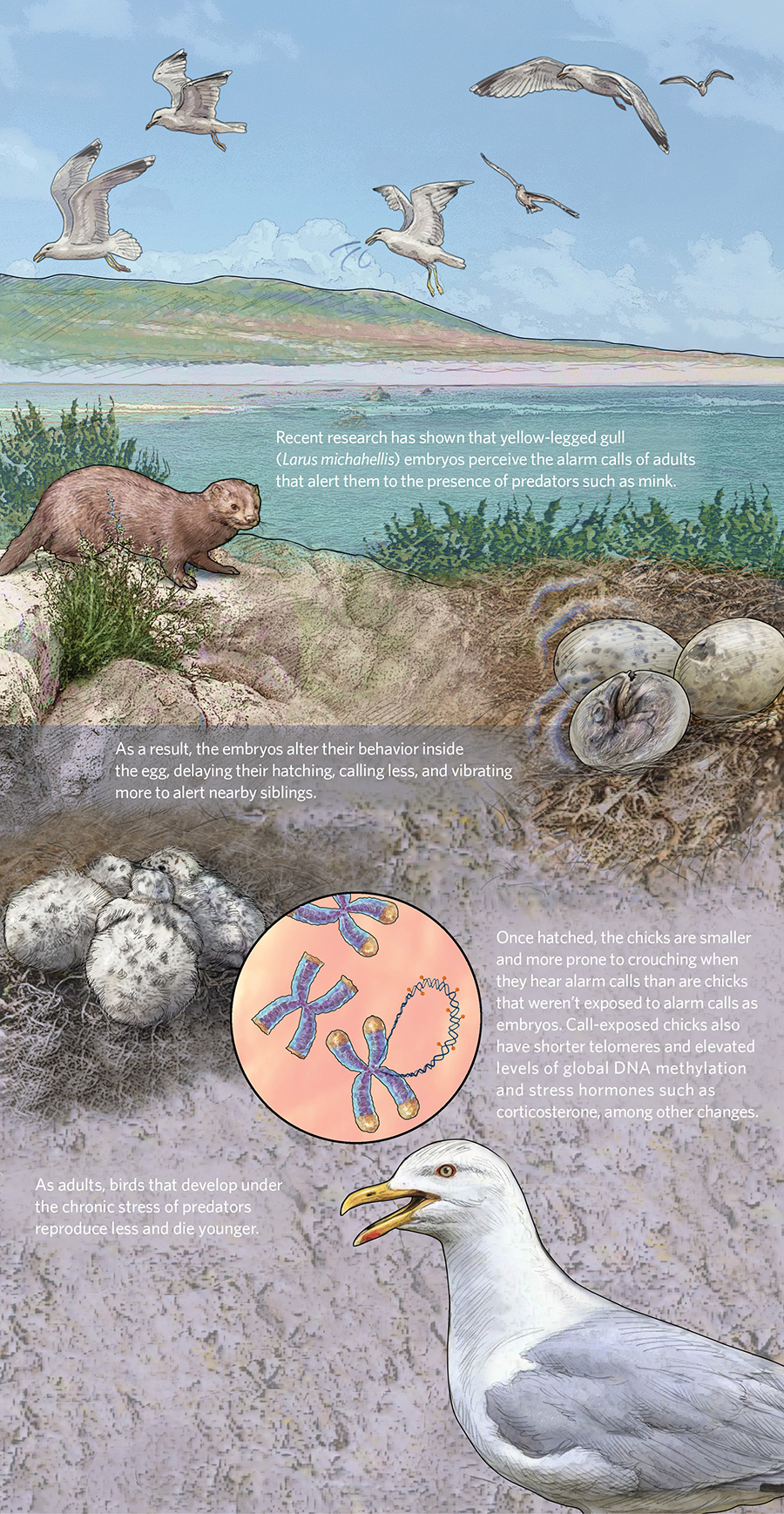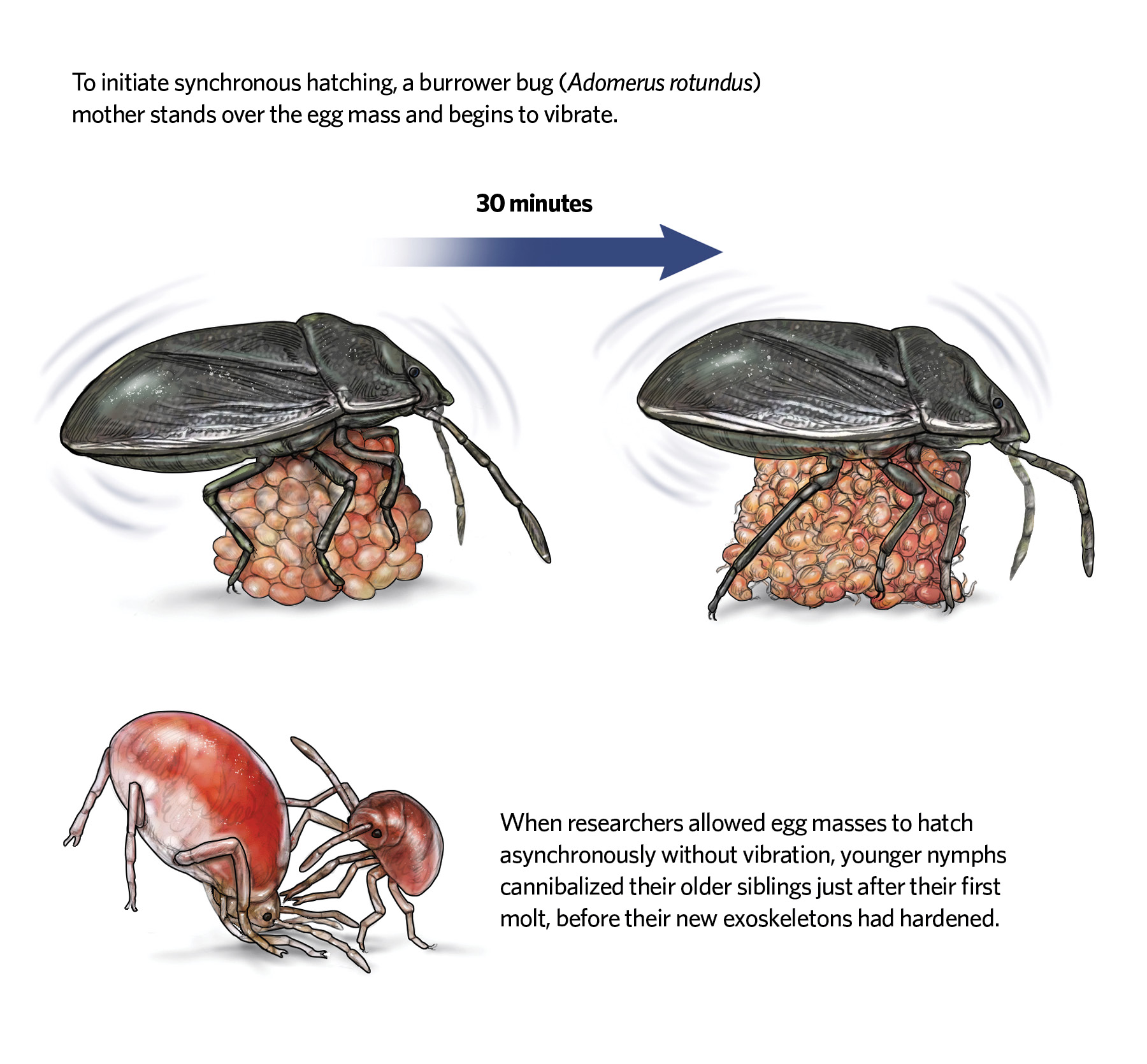ABOVE: © LAURIE O’KEEFE
Although scientists have long described embryos—whether ensconced in an egg or a womb—as passive agents, new research shows that they are in fact capable of sensing conditions in their external environments. By eavesdropping on the sounds of family members or sensing the quakes of an approaching predator, for example, developing young can alter their development or modify their behavior–a phenomenon known as acoustic developmental programming. In some cases, these prebirth adaptations affect lifelong fitness.
Seagull Chicks Know When Predators Are Lurking

Zebra Finches Warn Their Chicks When It’s Hot

Glass Frogs Can Tell Pop from Predator

Vibrations Help Reduce Cannibalism in Burrower Bugs

Read the full story.


